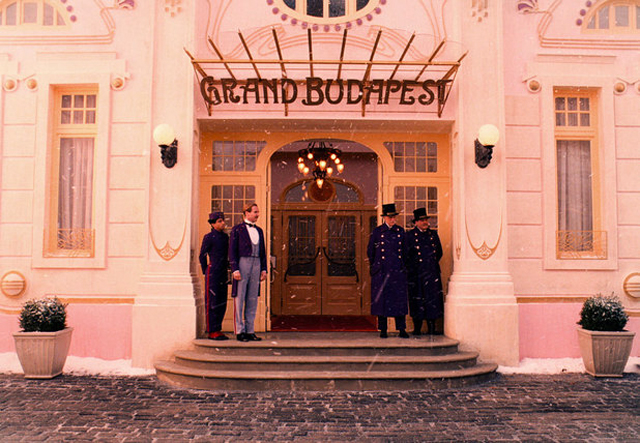If you live in what Americans’ obnoxiously refer to as the Heartland or those places, as I do, where residents more obnoxiously claim the title despite their geographical and cultural liminality, you have been hearing an awful lot in the past week about how the President has failed to protect his charges. The beheadings were bad enough, but now there’s the Ebola virus to inspire panic. (More…)
Author: Charlie BertschCharlie Bertsch is a teacher and writer living in Tucson, Arizona. A founding editor and regular contributor to one of the world’s first online magazines, Bad Subjects, his work has appeared in numerous publications including The Oxford American, Punk Planet, Tucson Sentinel, Phoenix New Times, Cleveland Scene, and the San Francisco Bay Guardian.
He has served as the Music Editor for Tikkun and Zeek. His essays have appeared in Let Fury Have The Hour: The Punk Rock Politics of Joe Strummer, The Anti-Capitalism Reader: Imagining a Geography of Opposition, and both Bad Subjects collections, Collective Action and Political Education for Everyday Life.
Charlie is currently at work on a book about memoir in the age of New Media.
Charlie Bertsch is a teacher and writer living in Tucson, Arizona. A founding editor and regular contributor to one of the world’s first online magazines, Bad Subjects, his work has appeared in numerous publications including The Oxford American, Punk Planet, Tucson Sentinel, Phoenix New Times, Cleveland Scene, and the San Francisco Bay Guardian.
He has served as the Music Editor for Tikkun and Zeek. His essays have appeared in Let Fury Have The Hour: The Punk Rock Politics of Joe Strummer, The Anti-Capitalism Reader: Imagining a Geography of Opposition, and both Bad Subjects collections, Collective Action and Political Education for Everyday Life.
Charlie is currently at work on a book about memoir in the age of New Media.
“Daredevil” is not a word that many people associate with Germany these days; certainly not the nation’s military. And that’s probably a blessing, even if its allies long for less hesitant support. The history of Germans acting boldly took a wrong turn shortly after Martin Luther nailed his theses to the church door. Does anybody want to risk urging them to act now and think later? (More…)
There are reasons for Europeans to feel antipathy towards the United States, just as there were in previous decades. But expressing these sentiments is not as easy as it used to be. The bait-and-switch move that reliably substituted cultural targets for political ones is becoming harder to pull off. (More…)
When I was little, anti-war sentiments were pervasive. Enough people remembered the horrors of the two world wars to make the notion of military action as policy by other means deeply problematic. Repugnance at the futility of the Vietnam War made returning soldiers feel abandoned and ashamed. Nuclear annihilation loomed. But every boy I knew still wanted a G.I. Joe. (More…)
The AK-47 assault rifle and the state of Israel are almost exactly the same age. Although this is purely a coincidence, it provides a useful opportunity to ponder their relationship. Throughout the Cold War, the AK-47 signified resistance to the hegemony of the free-market West, both during the final decades of traditional colonialism and the confusing post-colonial period that followed it. (More…)
Sometimes, after we’d made the turn off Slifer Valley Road and passed through the covered bridge, my mother would take her right hand off the steering wheel, point out the passenger-side window, and inform me, “That’s where the glass house is.” Even though I never managed to see this marvel, I never tired of her commentary. Because I needed to know who couldn’t throw stones. (More…)
It made me feel sad, seeing the “perfect thing” reduced to such a pedestrian function. Impersonally repurposed, devoid of caché, the antithesis of the iPod’s glory years. Worse still, it had been caged next to instructions on how to use it, as if the average consumer would have forgotten, in stark contrast to the portable phonograph displayed by the cash register for Record Store Day. (More…)
Over the past month, pieces marking the twentieth anniversary of Kurt Cobain’s suicide have built to a crescendo. For those who remember the initial coverage of his death, when his face stared out from publication after publication, the commemoration inspired a disturbing sense of déjà vu. We were being asked to relive something that wasn’t pleasant to begin with, but also, inevitably, to compare that period with our own. (More…)
Wes Anderson’s latest picture Grand Budapest Hotel has been widely praised by critics for exposing more of the melancholy that has lined all of his ventures. With its allusions to the rise of fascism in the 1930s, and the fate of Eastern Europe’s smaller nations after both World Wars, the film definitely comes closer to delivering the sort of message many found lacking in his previous work. (More…)
Some songwriters are city planners, always seeking out new spaces for their muse. Some are interior designers, redecorating the same rooms on record after record. And some, like the Dum Dum Girls’ Dee Dee prefer to sit and stare at the same four walls, discerning what was there all along. Her band’s new album Too True is no departure. But that’s precisely what makes it good. (More…)
Sometimes the Internet surprises us with the past or, to be more precise, its own past. The other day my social media feed started to show the same clip over and over. It was one I had seen years before and forgotten about, back from the bottom of that overwhelming ocean of content available to us at any given moment. Why was it reappearing now, I wondered? (More…)
Seeing this photograph of graffiti in Stuttgart transported me back to my time as an exchange student in Germany. Not so much for the cleverness of the critique it implies — though I do appreciate it — but because I spent much of my stay asking myself the very same question, “What the fuck is Heimat?” (More…)











